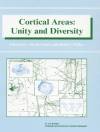The book explores, through a reflection on food, the complexity of the concept of well-being. It starts from the consideration that food is a fundamental element for human well-being, and for well-being of the planet as a whole. Not only does food guarantee the survival of human beings, it is also a cultural expression. With regard to the Italian socio-cultural context, the contributors explore how food relates to aspects such as history, tradition, new food styles, health, and the old and new technologies used to produce food. The studies in the book do not simply analyse indicators to illustrate the Italian situation in the ‘here and now’. As part of the tradition of studies on social indicators, they provide valid and well-founded indications to contribute to an improvement in the quality of life for years to come.
This work on the theme of food represents a very useful contribution to the general reflection on well-being and its statistical, sociological, and multidisciplinary study, due to the importance historically given to food in Italy and the socio-cultural implications of food in various life contexts.
विषयसूची
– 1. The Relationship between Food Styles and Health: A Contribution from Italian Official Data. – 2.
Sagre and Quality of Life. The Italian Heritage of Popular Gastronomy. – 3. New Food and Restaurant Trends. – 4. Food Consumption Associated with Health Status and Lifestyle Factors in the Adult Italian Regional Population: An Analysis Proposal for Official Statistics Data. – 5. On the Theory of Measurement of Experience-Based Food Insecurity at the Global Level. – 6. Experienced Food Insecurity: A Compared Analysis between Formative and Reflective Approach. – 7. Agriculture and New Technologies: A Basic Challenge for the Twenty-First Century. – 8. Food and Communities: Perspectives of Sharing Society. – 9. Epilogue—Food Memories and Quality of Life.
लेखक के बारे में
Carolina Facioni is a sociologist at the Italian National Institute of Statistics (ISTAT) Rome, Italy. She obtained the Ph D in social sciences with a thesis on the Italian contribution (both theoretical and field research) to Futures Studies. She collaborates in the scientific committee of the scientific journals Futuri and Ratio Sociologica. Her main scientific interests are forecasting studies, issues relating to demographic emergencies, and quality of life indicators.
Gabriele Di Francesco is Associate Professor of General Sociology at the ‘G. D’Annunzio’ University of Chieti-Pescara and president of the degree course in social work. His main scientific interests cover the areas of cultural studies, sociology of health, socio-ethnography of nutrition and empirical social research on quality of life. He also deals with the sociology of social groups and socialization processes, and with sustainable development. He directs the scientific journals Ratio Sociologica, Journal of Social Housing, and Medieval and Modern Studies. He is the coordinator and scientific manager of the international conference on ‘Gastronomic Reason’.
Paolo Corvo is Associate Professor at the University of Gastronomic Sciences in Pollenzo, where he teaches travel cultures and social change and new trends of food and gastronomy. He deals with issues related to food and consumption, sustainable food and wine tourism, indicators of quality of life, wellbeing and happiness. He has carried out research and training activities for public and private corporations.












